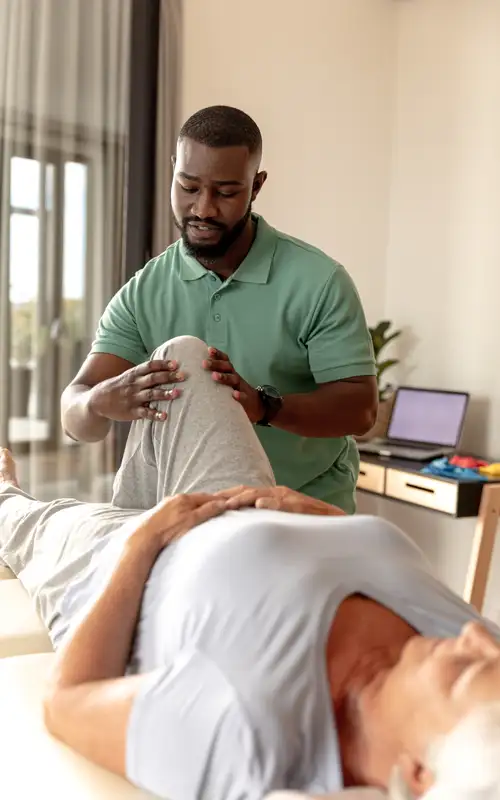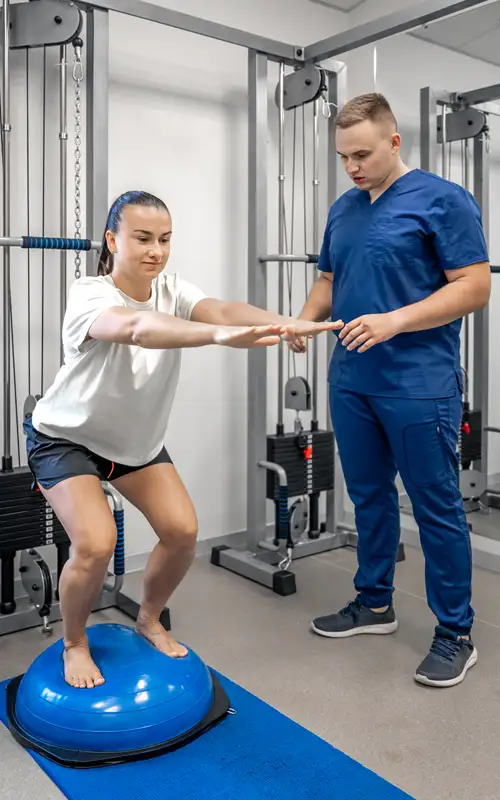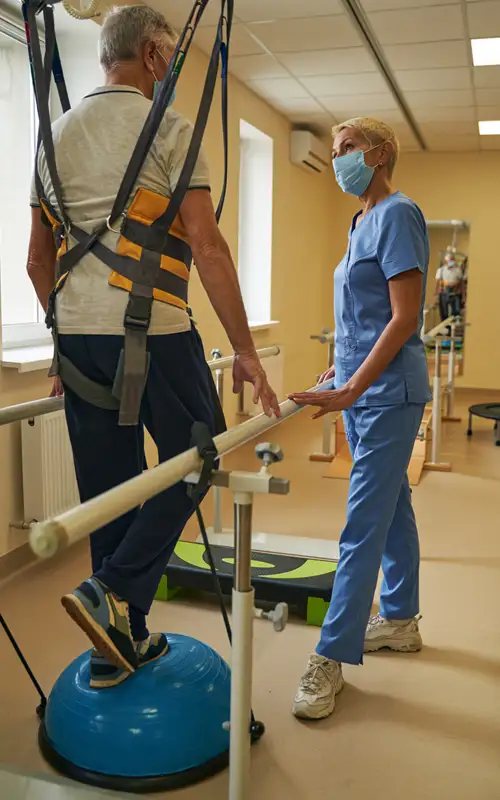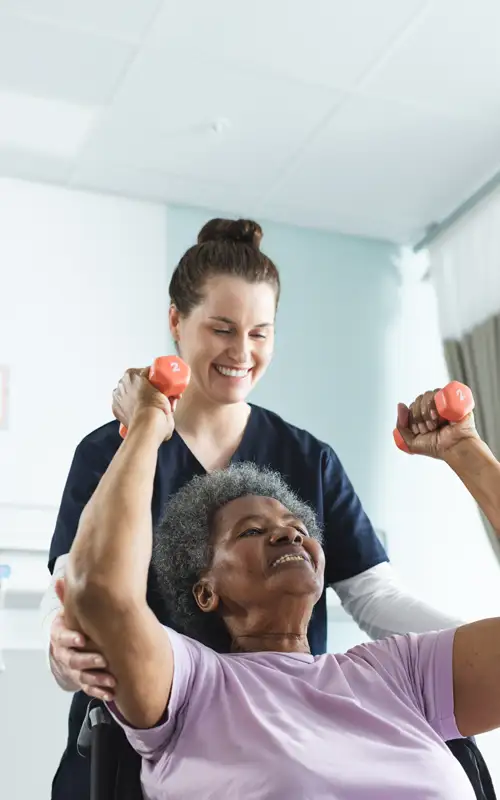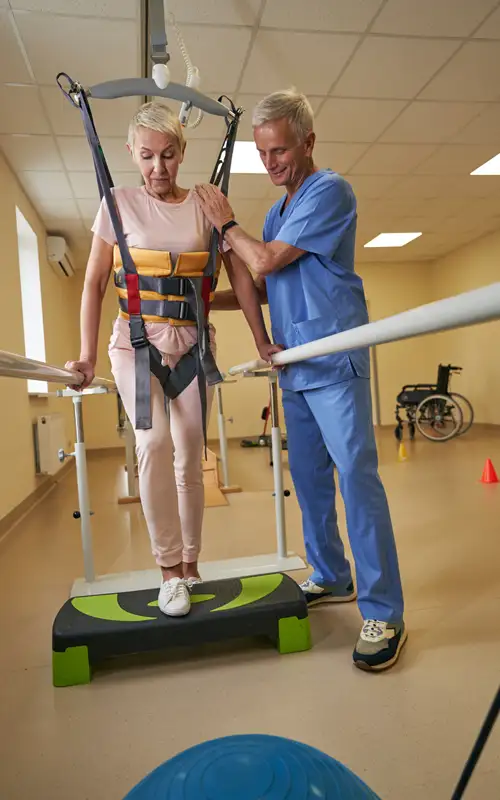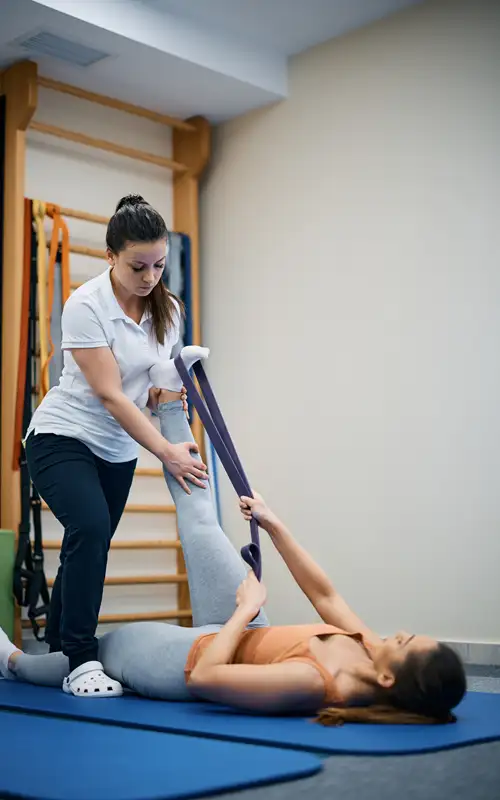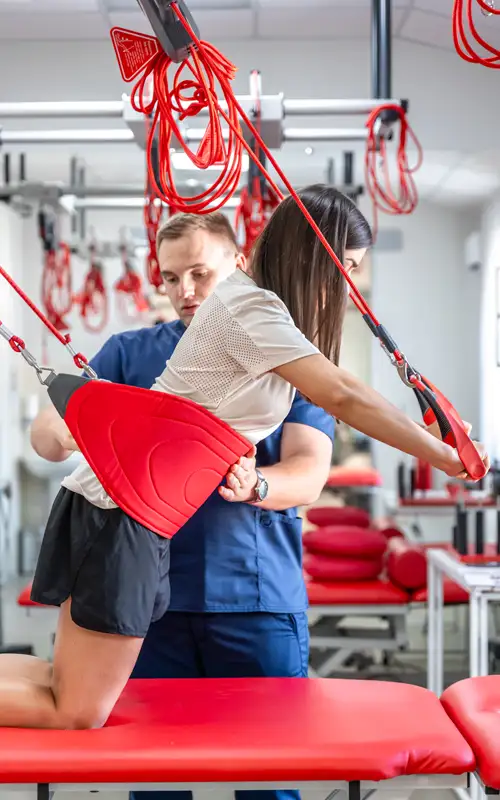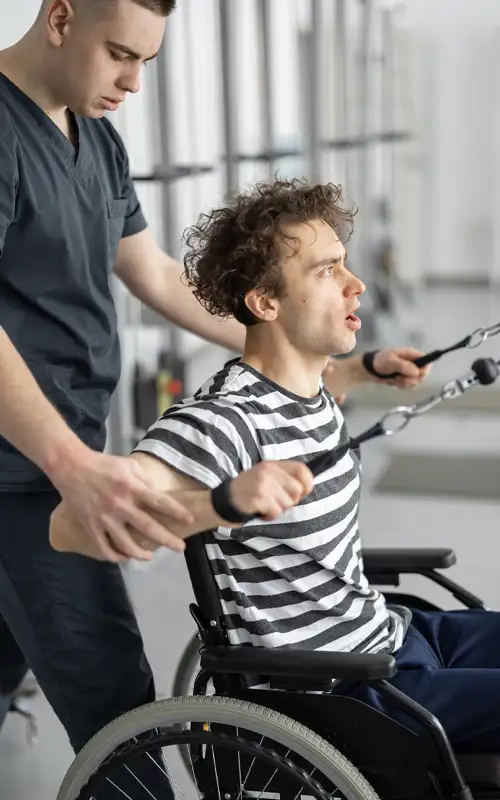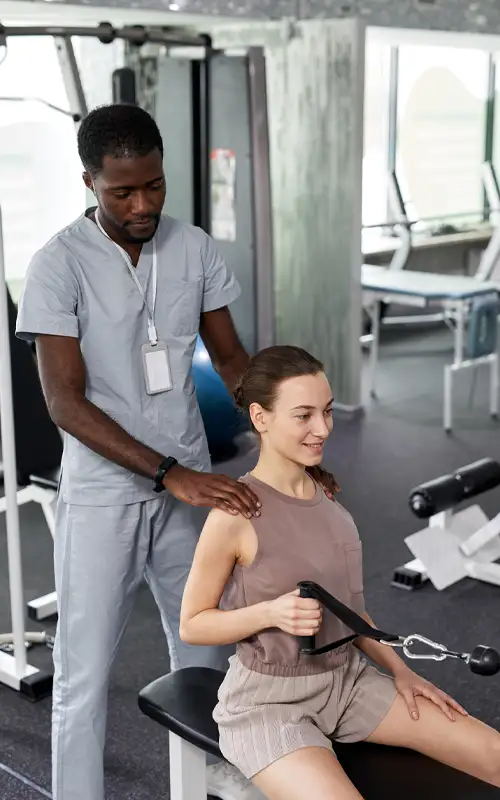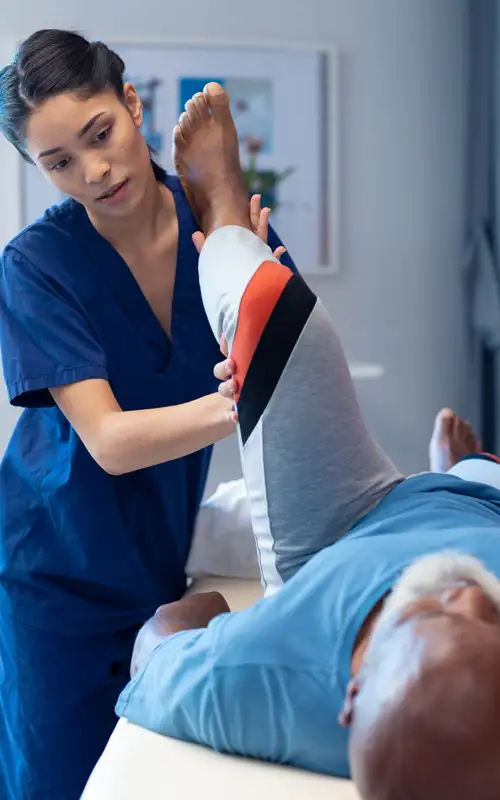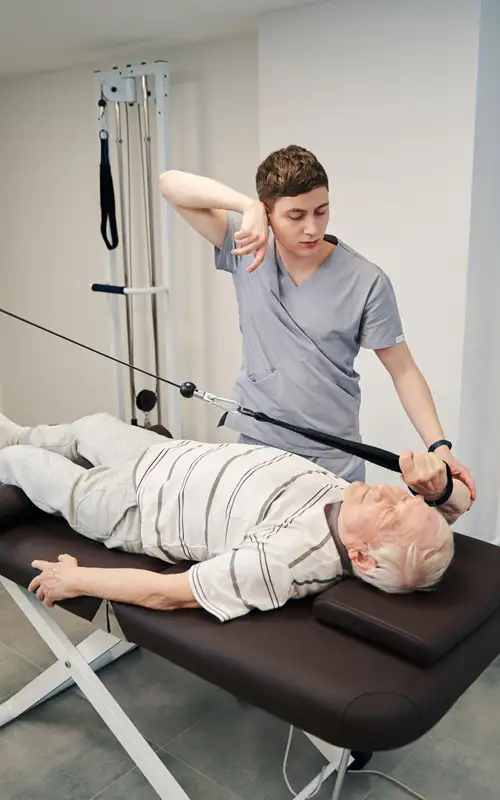Doctor of Physical Therapy
Overview
As chronic health conditions become more prevalent, the aging population explodes, and our healthcare system places greater emphasis on preventative care, the demand for Physical Therapists (PTs) is on the rise. Leveraging a wide range of treatment modalities—from stretching and strengthening exercises to manual therapies like massage or joint manipulation to assistive technologies like ultrasound or electrical stimulation—PTs help individuals of all ages recover, improve, or maintain their physical abilities and quality of life.
SCU’s online-hybrid Doctor of Physical Therapy program provides a unique blend of remote and in-person learning, enabling students with a variety of work and life commitments to launch careers in this rapidly expanding field.
Program at a Glance
- Full-time, hybrid program lasting 6 terms
- Largely online coursework, complemented by immersive, in-person clinical training
- Completed in just 2 years (vs. 3 years at many other institutions)
- Cadaver lab training, offering unparalleled insight into the shape, feel, and function of the body
- Advanced learning technology including Complete Anatomy, SynDavers, Draw It to Know It, and Diagnostic Imaging Technolgy
- Fixed tuition guarantee, federal financial aid for those who qualify, and a range of institutional scholarship opportunities
Upcoming Start Dates
- Spring: January 5, 2026
Click above to view the image gallery.
What Sets Our Program Apart?
FASTER, MORE FLEXIBLE FORMAT
While many Doctor of Physical Therapy programs take roughly three years to complete, ours takes just two. And thanks to a unique blend of online and in-person instruction, you can pursue your dream of becoming a Physical Therapist without relocating or abandoning your personal and professional commitments. At SCU, you’ll attend lectures online but receive essential hands-on training and clinical experiences live and in-person. During Year 1, you’ll come to our campus in Whittier California six times (7-10 days per visit) for immersive lab training. During Year 2, you’ll put your learning into practice during your real-world clinical rotations, at a location near your hometown (subject to availability).
CADAVER LAB
At SCU, you won’t learn anatomy solely through textbooks and technology. You’ll have the powerful opportunity to learn in our cadaver lab—a classic teaching method offering unparalleled insight into the shape, feel, and function of the body. During this awe-inspiring experience, you’ll examine and dissect real human tissues and structures, gaining an understanding of human anatomy that is simply not possible through textbooks and virtual models alone.
TECHNOLOGY-ENHANCED LEARNING
In addition to classroom lessons and hands-on clinical training, we support your learning through advanced teaching technology including:
- Complete Anatomy: Also known as 3D4 Medical, Complete Anatomy is a powerful simulated anatomy suite on which you can perform intricate tasks such as removing layers of tissue and visualizing details of the human body.
- SynDavers: These lifelike silicone structures replicate living human tissue and are designed to be ultra realistic, helping you better understand the human body as you move muscles and parts.
- Draw It to Know It (DITKI): This interactive tool is perhaps our most popular, featuring YouTube-style videos that include drawings, animations, and digital worksheets to help you more easily learn about physiology and successfully prepare for your licensure exams.
- Diagnostic Imaging Technology: You’ll learn to use advanced tools like X-rays, MRIs, CT scans, and more to “see” inside the body without surgery, for less invasive, earlier diagnosis.
BROADER INTERPROFESSIONAL EDUCATION
Most of today’s healthcare colleges offer an “interprofessional education” through which students learn with, from, and about other disciplines. But at SCU, our Interprofessional Education is broader and, frankly, we think that makes it better. Unlike other colleges, we teach you about both conventional and complementary disciplines—not just one or the other—because we believe in both and we teach both, all under one roof.
AN INTEGRATIVE, WHOLE HEALTH APPROACH
All too often, healthcare providers “stay in their lanes” rather than building comprehensive care plans that include other disciplines, professionals, and approaches. In addition, they look strictly at the physical body as opposed to all the factors that may be influencing a patient’s health and well-being—genetics, lifestyle, mental health, relationships, physical environments, community support, and beyond. But at SCU, no matter what program you are in, you’ll learn to blend the best of conventional and complementary approaches (integrative healthcare) and to treat the entire mind, body, and spirit (whole health)—for true lasting wellness.
Accreditation Statement per CAPTE
Graduation from a physical therapist education program accredited by the Commission on Accreditation in Physical Therapy Education, 3030 Potomac Ave., Suite 100, Alexandria, Virginia 22305-3085; phone; 703-706-3245; accreditation@apta.org is necessary for eligibility to sit for the licensure examination, which is required in all states. Candidacy is considered to be an accredited status, as such the credits and degree earned from a program with Candidacy status are considered, by CAPTE, to be from an accredited program. Therefore, students in the charter (first) class should be eligible to take the licensure exam even if CAPTE withholds accreditation at the end of the candidacy period. The initial accreditation decision will be determined at CAPTE’s fall meeting in October of 2027. Graduates of the charter class will be eligible to take the National Physical Therapy Examination in January of 2028, the first time that the exam is offered after graduation in August of 2027. That said, it is up to each state licensing agency, not CAPTE, to determine who is eligible for licensure. Information on licensing requirements should be directed to the Federation of State Boards of Physical Therapy (FSBPT: www.fsbpt.org) or specific state boards (a list of state boards and contact information is available on FSBPT’s website.
Southern California University of Health Sciences is seeking accreditation of a new physical therapist education program from CAPTE. On November 1, 2024, the program submitted an Application for Candidacy, which is the formal application required in the pre-accreditation stage. Submission of this document does not assure that the program will be granted Candidate for Accreditation status. Achievement of Candidate for Accreditation status is required prior to implementation of the professional phase of the program; therefore, no students may be enrolled in professional courses until Candidate for Accreditation status has been achieved. Further, though achievement of Candidate for Accreditation status signifies satisfactory progress toward accreditation, it does not assure that the program will be granted accreditation.

